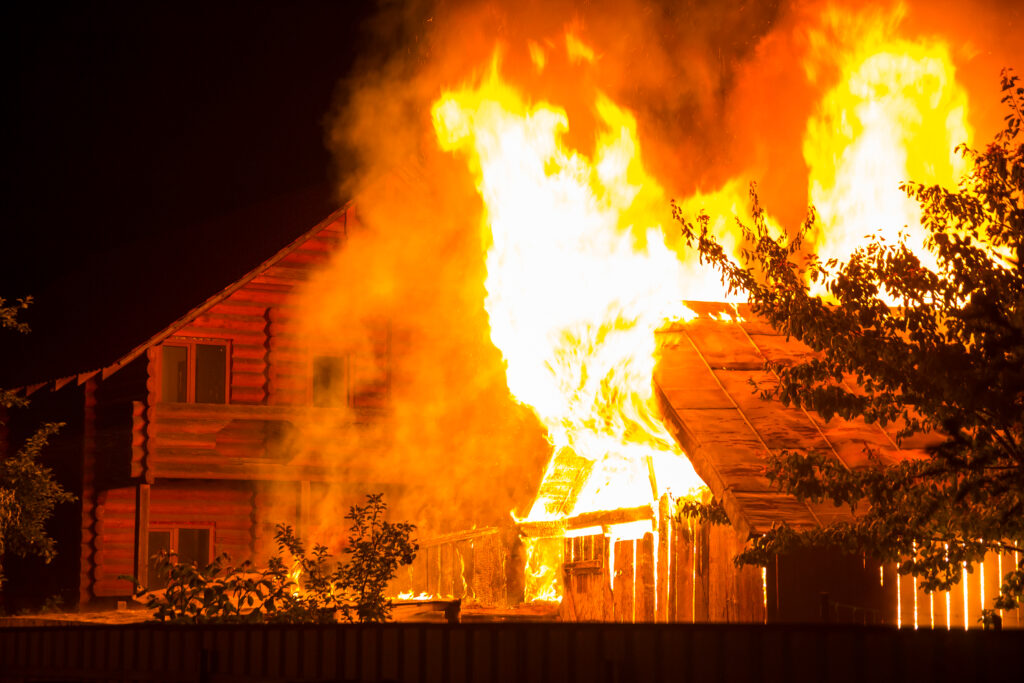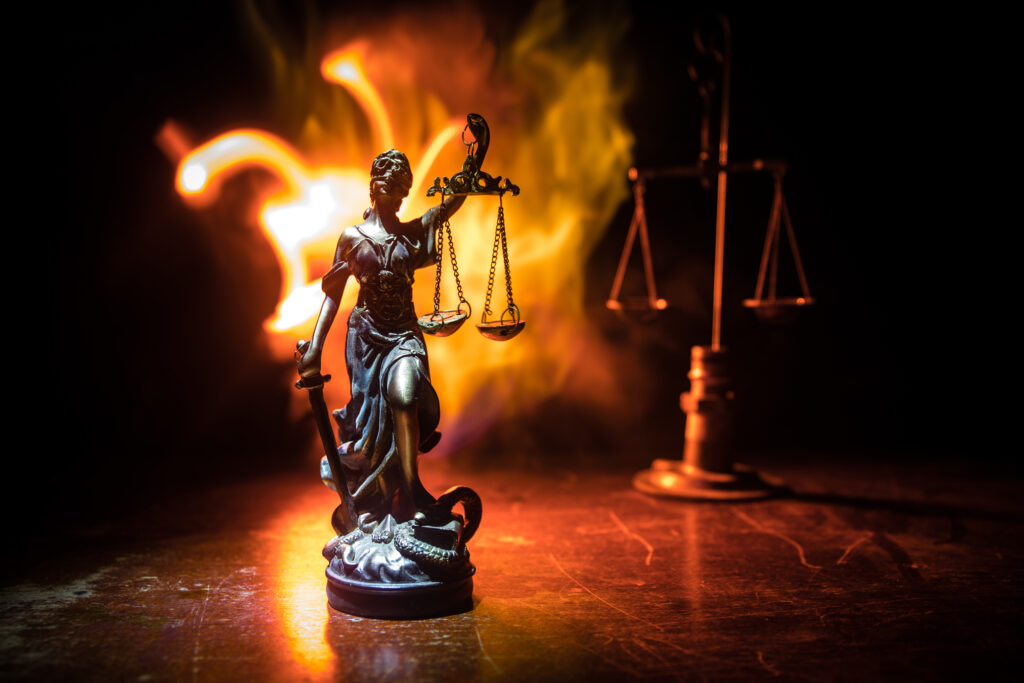Wildfires that result from utility company negligence can lead to a variety of business losses, including property damage, lost income, and business interruption. Companies may face the destruction of buildings, inventory, and equipment, as well as revenue loss due to operational shutdowns. Supply chain disruptions and additional costs for temporary operations can further affect businesses.
Filing a business loss wildfire claim or lawsuit involves several steps. First, you must establish the utility company’s negligence, usually through investigation and evidence gathering. An experienced wildfire lawyer can assess your damages, including both immediate property losses and long-term financial effects. Once the damages are determined, your wildfire attorney will file a claim against the responsible company. If the company offers an insufficient settlement, the case may move to a lawsuit, where a legal complaint is filed in court. During litigation, both sides gather evidence, and settlement negotiations may occur. If no agreement is reached, the case proceeds to trial.
A skilled California wildfire lawyer will handle each step of the process for you to ensure that you receive fair compensation for your business losses.
How Do Negligent Utility Companies and Other Entities Cause Wildfires?

Wildfires can be devastating, destroying homes, businesses, forests, and lives. While some fires start naturally, many result from the negligence of utility companies and other entities responsible for maintaining power lines, equipment, and land. When these groups fail to take proper precautions, the consequences can be catastrophic.
One of the most common ways that utility companies contribute to wildfires is through poorly maintained power lines. Electrical equipment can wear out over time, and if companies do not inspect and repair it regularly, it can spark fires. High winds can cause old or weak power lines to break, sending sparks into dry vegetation below. Transformers, insulators, and other electrical components can also fail, releasing heat or sparks that ignite fires. Without proper upkeep, these issues go unnoticed until it is too late.
Another factor is the failure to clear vegetation around power lines. Overgrown trees and brush can catch fire if they come into contact with electrical wires. Many regions require utility companies to trim trees and clear flammable vegetation around power lines, but some companies cut corners to save money. When they ignore these responsibilities, they create conditions for fires to spread rapidly.
Construction and industrial activities also pose risks. Companies using heavy machinery, welding equipment, or other tools that generate sparks must take precautions to prevent fires. If they fail to follow safety procedures, such as using spark arrestors or avoiding work during dry, windy conditions, they can accidentally ignite a wildfire. Even something as simple as a worker tossing a cigarette into dry grass can lead to disaster.
Negligence also extends to entities responsible for land management. Some landowners and government agencies fail to perform controlled burns, clear dead vegetation, or maintain firebreaks. These preventative measures help reduce the fuel available for wildfires, but when ignored, fires spread faster and become more difficult to control.
Finally, some fires start due to outdated or faulty infrastructure. When companies prioritize profits over safety, they may delay replacing aging equipment or ignore known risks. If a company is aware of a hazard but does nothing to fix it, it can be held accountable for the destruction that follows.
Steps of Filing a Business Loss Wildfire Claim
When a wildfire results from the negligence of a utility company or another responsible entity, businesses that suffer losses may be entitled to compensation beyond what insurance coverage provides. Filing a business claim or lawsuit against a negligent party involves a detailed process that requires careful planning and legal knowledge. A skilled wildfire attorney can guide you throughout this process, ensuring that you receive the compensation you deserve.
The first step in filing a claim is determining liability. Utility companies and other entities can be held responsible for fires if they fail to maintain equipment properly, clear vegetation around power lines, or follow safety protocols. If there is evidence that the company’s negligence directly led to the wildfire, you may have grounds for a lawsuit. A wildfire lawyer will investigate the circumstances surrounding the fire, reviewing documents, eyewitness testimonies, and expert reports to establish the company’s responsibility.
Once liability is established, the next step is to assess the damages your business has incurred. While insurance may cover some of these losses, it often falls short, especially if your business faces significant operational interruptions, lost profits, or supply chain disruptions. A lawyer will document all of your damages, from physical property loss to income loss, and even the long-term effects of the fire on your business. This step is critical, as it ensures that your claim reflects the full scope of your losses.
After damages are assessed, your lawyer will file a formal claim with the responsible company. The company may try to settle the case quickly, but it’s important to understand whether their offer fully compensates you for all of the losses you’ve experienced. A wildfire attorney will negotiate with the company, ensuring that the settlement is fair and that all potential sources of recovery are explored. If the company refuses to offer an adequate settlement, your lawyer will be ready to file a lawsuit in court.
If a lawsuit is necessary, the legal process begins with filing a complaint, which details the company’s negligence and the damages your business has suffered. The defendant, or the responsible party, will then have an opportunity to respond, and the discovery phase follows. This is where both sides gather evidence and question witnesses. The lawyer will use this phase to build a strong case, drawing on expert testimony and evidence to demonstrate negligence.
Throughout this process, a skilled wildfire lawyer will advocate for your business, ensuring that your rights are protected and working to secure the best possible outcome. Whether through negotiation or litigation, your lawyer will fight hard to get you the compensation you deserve for losses that go beyond your wildfire insurance coverage.
What Happens During Wildfire Litigation?

Wildfire litigation begins when a business or individual decides to take legal action against a negligent utility company or other responsible entity for causing a wildfire. The process can be complicated and time-consuming, but it’s essential for obtaining compensation for damages beyond what standard wildfire insurance may cover. Here’s an overview of what happens during wildfire litigation, starting with the filing of a lawsuit.
Filing the Lawsuit
The first step in the litigation process is filing a lawsuit in the appropriate court. This is done by a lawyer who will prepare and submit a legal complaint. The complaint outlines the details of the wildfire, including how it resulted from the negligence of a utility company or another defendant. It will also include the damages the plaintiff (the business or individual filing the lawsuit) has suffered, such as property damage, lost income, or business interruption. Once the complaint is filed, it is served to the defendant, informing them of the lawsuit and giving them time to respond.
Defendant’s Response
After the defendant (the utility company or other responsible entity) receives the lawsuit, they have a set amount of time to file a response. The defendant may deny the allegations or assert that they were not negligent in causing the fire. They may also file a motion to dismiss, which asks the court to throw out the case. In some instances, the defendant may offer a settlement, which is a financial offer to resolve the case without going to trial. An experienced wildfire attorney can help you decide whether you should accept or reject a particular settlement offer.
Discovery Phase
If the case moves forward, both parties enter the discovery phase. During this time, both the plaintiff and defendant gather evidence to support their arguments. This can include documents, photographs, expert witness reports, and depositions (sworn statements) from people involved in the case. Discovery allows both sides to better understand the facts and evidence, which helps in preparing for trial or settlement negotiations.
Pre-Trial Motions and Ongoing Settlement Talks
Before the trial begins, there may be pre-trial motions, where the parties ask the court to make rulings on certain issues, such as whether certain evidence can be used or whether the case should be dismissed. During this time, both parties may also engage in settlement talks. Settlements can happen at any point during litigation, and many cases are resolved this way to avoid the time and expense of going to trial.
Trial
If the case does not settle, it proceeds to trial. A judge or jury will hear both sides present their arguments, and evidence will be examined. After deliberation, a verdict will be reached. If the plaintiff wins, they will be awarded compensation for their damages.
Throughout the litigation process, having a skilled wildfire lawyer on your side is crucial. They will guide you through each step, ensure proper documentation of damages, and maximize your chances of a successful outcome.
Compensation You Can Recover for the Business Losses You Suffer in a Wildfire
If your business suffers losses due to a wildfire, you may be eligible to recover compensation for a variety of damages. These damages can go beyond what insurance typically covers – especially if the fire resulted from the negligence of a utility company or other entity. The recoverable losses you suffer will depend on the specifics of your case, but they generally fall into several categories.

- Property Damage: One of the most straightforward losses you can recover involves repairing or replacing physical assets that were damaged or destroyed in the fire. This includes your business’s building, equipment, machinery, inventory, and other tangible property. Even if your building wasn’t completely destroyed, smoke damage, water damage from firefighting efforts, or structural damage may still require extensive repairs. Compensation for property damage helps you return to normal operations as quickly as possible.
- Lost Income and Profits: Wildfires often force businesses to shut down temporarily, leading to lost revenue. Compensation for lost income can cover the earnings your business would have made had the fire not occurred. If the fire results in long-term disruptions, such as rebuilding your property or dealing with supply chain delays, you can also recover compensation for future lost profits. Compensation for this loss accounts for the financial effects the fire has on your business’s bottom line.
- Business Interruption: Business interruption compensation is designed to cover the financial losses that result from a temporary shutdown of operations due to a wildfire. This can include earnings for employees, rent for leased property, and other ongoing operational costs that you are required to pay even while your business is not functioning. This compensation helps businesses stay afloat during periods of disruption and enables them to resume operations once the immediate effects of the fire have been managed.
- Supply Chain Disruptions: If the wildfire interrupts your supply chain, preventing you from receiving materials, goods, or services that your business relies on, you can recover compensation for these losses. This can include additional costs associated with finding new suppliers or paying higher prices for materials that are in short supply due to the fire’s impact.
- Extra Expenses: In some cases, businesses may incur extra expenses as a result of a wildfire. These can include costs for temporary facilities, additional security, or other resources needed to continue operations during the rebuilding process. Compensation for extra expenses helps cover these unplanned costs.
Recovering compensation for business losses due to a wildfire requires careful documentation and legal knowledge. A skilled wildfire lawyer can help you identify the full range of damages you’re entitled to recover and work to secure the full amount of compensation you deserve.
Speak with an Experienced Wildfire Lawyer About Your Case Today
If you sustain business losses due to a wildfire that resulted from utility company negligence, you may be eligible for compensation. A skilled wildfire lawyer can determine liability in your case, gather evidence, and work to maximize the compensation you receive for your business losses.